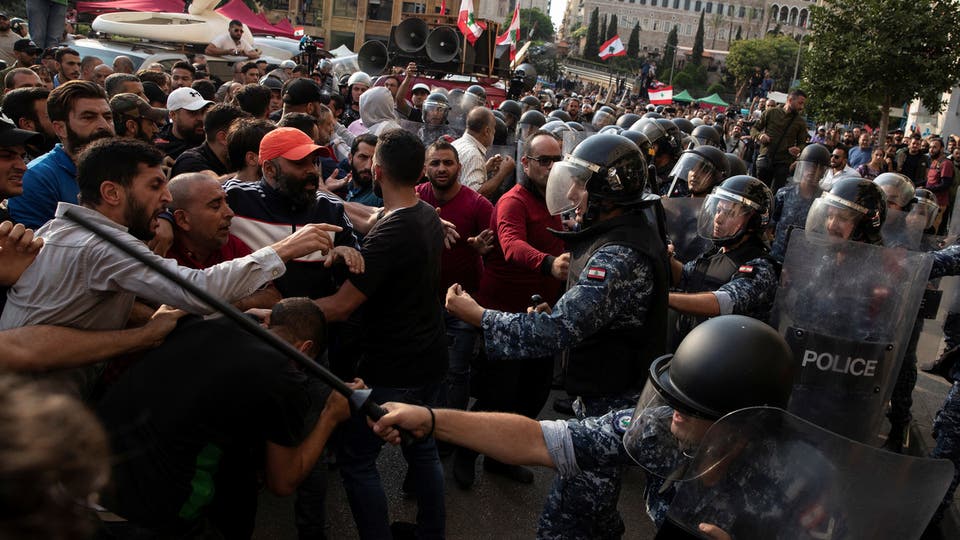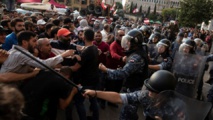Some protesters blocked major roads in the capital and in northern Lebanon, while others staged a sit-in in central Beirut along with shop owners.
"Most shops across the capital closed their doors today as the devaluation of the Lebanese pound continues," one shop owner said.
Troops were deployed across the capital to prevent violence.
The Lebanese Syndicate of Money Changers set the official exchange selling rate at 3,800 Lebaneses pound against the dollar, but the Lebanese pound was trading as high as 9,500 against the dollar in the black market.
Lebanon is experiencing its worst economic crisis since the 1975-90 civil war.
In March, Lebanon announced that it would suspend payments of maturing Eurobonds in order to safeguard the foreign currency reserves needed to meet basic imports.
"Most shops across the capital closed their doors today as the devaluation of the Lebanese pound continues," one shop owner said.
Troops were deployed across the capital to prevent violence.
The Lebanese Syndicate of Money Changers set the official exchange selling rate at 3,800 Lebaneses pound against the dollar, but the Lebanese pound was trading as high as 9,500 against the dollar in the black market.
Lebanon is experiencing its worst economic crisis since the 1975-90 civil war.
In March, Lebanon announced that it would suspend payments of maturing Eurobonds in order to safeguard the foreign currency reserves needed to meet basic imports.









 Home
Home Politics
Politics











